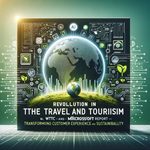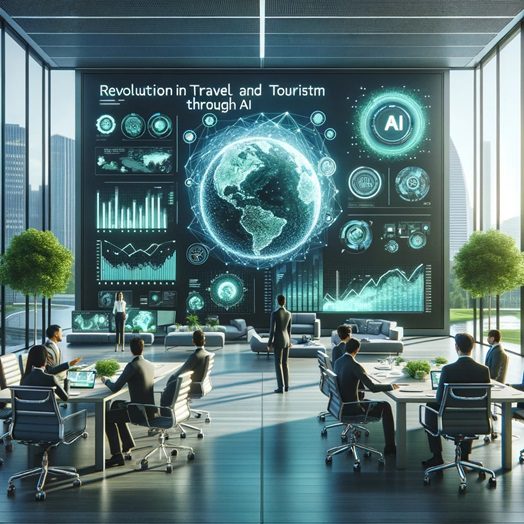 In an era marked by rapid technological advancement, the World Travel & Tourism Council (WTTC), in collaboration with tech giant Microsoft, has released a groundbreaking report highlighting the transformative role of Artificial Intelligence (AI) in reshaping the Travel & Tourism sector. This insightful revelation, announced at the prestigious global tourism body’s event at FITUR, marks a decisive step towards a digitally empowered, customer-centric future in travel.
In an era marked by rapid technological advancement, the World Travel & Tourism Council (WTTC), in collaboration with tech giant Microsoft, has released a groundbreaking report highlighting the transformative role of Artificial Intelligence (AI) in reshaping the Travel & Tourism sector. This insightful revelation, announced at the prestigious global tourism body’s event at FITUR, marks a decisive step towards a digitally empowered, customer-centric future in travel.
As the industry’s global leader, WTTC’s commitment to pioneering innovation is unwavering. The report, the first in a series of AI-focused analyses, aims to redefine industry standards and emphasizes the need for greater integration of AI technologies. This move is a nod to digital progression and a strategic maneuver to revolutionize the sector’s operation.
AI’s capabilities extend beyond conventional uses, from personalised travel recommendations to dynamic pricing strategies. The technology promises to enhance every stage of a traveller’s journey, offering bespoke experiences tailored to individual preferences, powered by sophisticated AI algorithms and data analytics.
Julia Simpson, WTTC President & CEO, passionately articulates this vision: “AI is not merely a technological leap; it’s a strategic asset reshaping our industry. Its ability to personalize experiences, foster sustainable practices, and create innovative pricing models is unparalleled.”
Echoing this sentiment, Julie Shainock, Microsoft’s Managing Director of Travel, Transport & Logistics, highlights the practical applications of AI: “From inspiring travelers with personalized offers to empowering travel companies with productivity tools, AI is the driving force behind a more efficient, human-centric travel experience.”
However, the report highlights a critical gap: the Travel & Tourism sector lags behind other industries adopting AI. This lag represents a missed opportunity, as AI’s rapid advancement across various sectors last year positions it as a force to be reckoned with. Travel businesses are encouraged to recognize AI as a strategic priority, investing in talent and infrastructure to bridge this gap.
A notable challenge identified is the scarcity of AI-skilled workers, limited AI infrastructure, and the absence of formal AI strategies in many business plans. Addressing these issues is paramount for companies aiming to stay ahead in a rapidly evolving digital landscape.
Despite concerns about AI’s impact on employment, the report offers a positive outlook. It acknowledges that while AI will disrupt traditional job roles, it will also create new opportunities, leading to a net positive effect on employment in the sector.
Sustainability emerges as a critical theme in the report. Responsible data management is crucial in minimizing the environmental footprint of AI technologies. Practices such as data minimization, efficient storage, and accountable data disposal are vital for organizations seeking to align their digital strategies with environmental sustainability.
The report is not just an analysis of AI’s current applications; it’s a vision of a sustainable, customer-focused future. It emphasizes the importance of designing safe and responsible AI systems, marking a significant milestone in the sector’s commitment to innovation and sustainability.
This comprehensive study serves as a clarion call for the Travel & Tourism sector to embrace AI’s potential. It’s not just about staying competitive; it’s about shaping a future where technology enhances every aspect of the travel experience, from planning to the journey itself, while contributing to a more sustainable world.
The full report, a treasure trove of insights and strategic directions, is available on WTTC’s Research Hub, providing an invaluable resource for industry stakeholders aiming to navigate the complex landscape of AI in Travel & Tourism.
As we stand at the crossroads of technological advancement and industry evolution, this report from WTTC and Microsoft doesn’t just predict the future of travel; it actively shapes it. It’s a testament to the power of AI in transforming industries and a guidepost for those who seek to lead the way in this new era of travel.
Written by: Yves Thomas




















